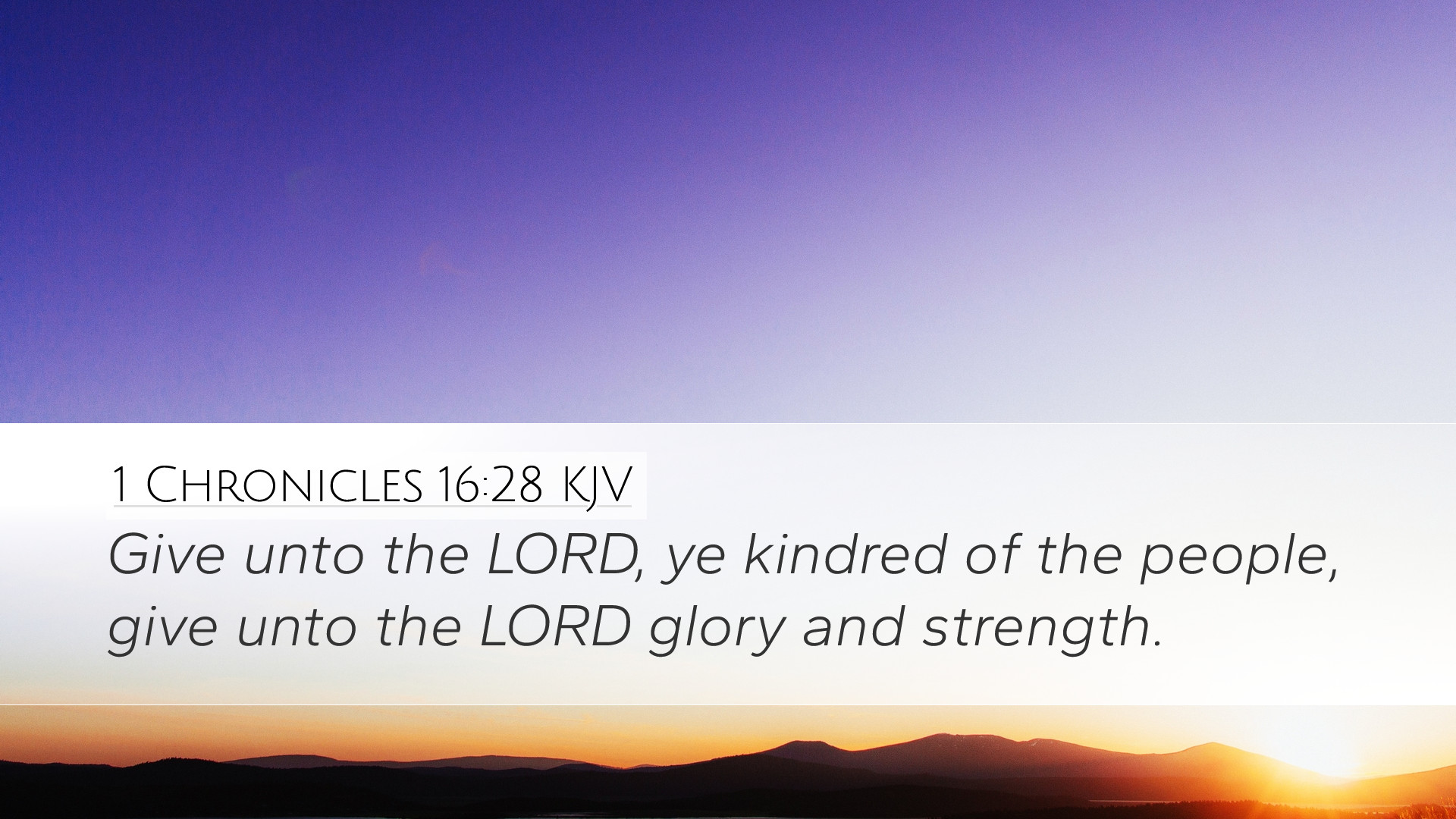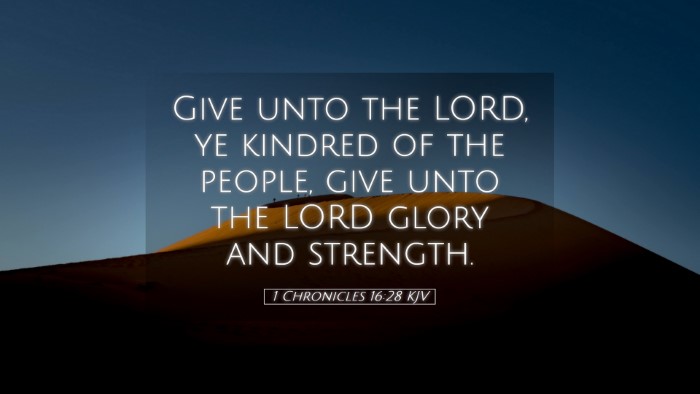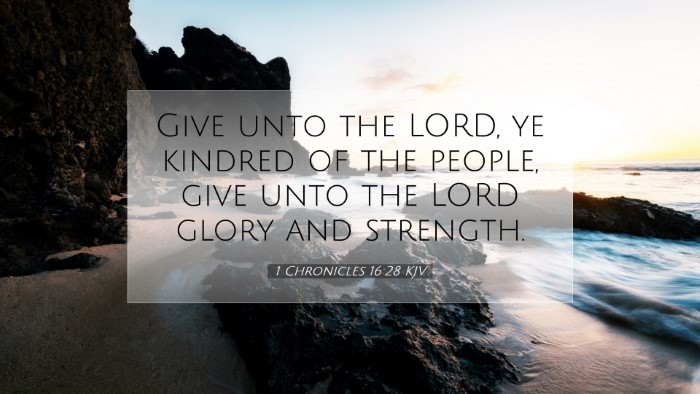1 Chronicles 16:28 - Bible Commentary
Verse Text: "Give unto the Lord, O ye kindreds of the people, give unto the Lord glory and strength."
Introduction
1 Chronicles 16:28 serves as a significant call to worship and acknowledgment of God’s majesty. This verse occurs in the context of King David's reflections on the Lord’s greatness and His covenant with Israel. It emphasizes the necessity of ascribing glory and strength to God, resonating deeply within the themes of praise and thanksgiving found throughout the Chronicles.
Contextual Background
The passage is part of a song of thanksgiving credited to David, which was sung when the Ark of the Covenant was brought to Jerusalem. This event symbolizes not only a geographical relocation of worship but also a spiritual renewal among the people of Israel. The exhortation to “give unto the Lord” is a declaration of worship that unites the kindreds of Israel in their national identity as chosen people.
Theological Insights
1. The Nature of Worship
According to Matthew Henry, worship is fundamentally an act of giving. This verse encapsulates the heart of devotion, where the people are instructed to present their reverence and acknowledge the attributes of God. Worship is not merely an internal experience; it is an external act that involves the community of believers.
2. The Call to Kindreds
The phrase "O ye kindreds of the people" implies a collective identity. Albert Barnes asserts that this collective call emphasizes inclusivity within the body of Israel, showcasing that every tribe and clan carries the responsibility to glorify God. This highlights the unity in worship, where diversity in membership does not diminish the singularity of purpose – the glorification of God.
3. Why Glory and Strength?
Adam Clarke draws attention to the significance of glory and strength as attributes of God deserving of human recognition. "Glory" represents God’s intrinsic majesty and worth, while "strength" reflects both His omnipotence and the support He offers believers. This duality invites believers to recognize not only who God is but also His power at work in their lives.
Practical Applications
1. A Lifestyle of Worship
The directive in this verse challenges believers to cultivate a lifestyle that consistently honors God. Worship transcends mere ritual; it is a holistic approach that sees every action as a potential offering to God’s glory. Pastors and teachers are encouraged to incorporate this understanding into their teaching, emphasizing the importance of making every part of life an act of worship.
2. Unity in Worship
The exhortation to “give unto the Lord” highlights the necessity of collective worship. In modern church settings, fostering a sense of community that encourages participation from various kindreds is vital. Creating spaces where diverse backgrounds contribute to the worship experience reflects the biblical call to unity in glorifying God.
3. Recognizing God’s Attributes
Encouraging congregants to ponder the attributes of God—His glory and strength—can profoundly deepen their worship experience. By teaching on God's omnipotence and sovereignty, pastors can help the congregants develop a more profound respect and awe for God, which naturally leads to more heartfelt worship.
Conclusion
1 Chronicles 16:28 serves as a timeless reminder of the essential call to worship and recognize God’s greatness. As pastors, students, and theologians dive deeper into this verse, they uncover layers of meaning that reflect the importance of ascribing worth to God collectively and individually. The verse invites all believers to respond with gratitude and devotion, fostering a thriving community grounded in worship.


